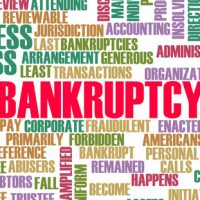What are Allowed Living Expenses in a Chapter 13 Repayment Plan

The repayment plan is the centerpiece of a Chapter 13 bankruptcy. This plan can last up to five years, and it identifies how much you will pay to your creditors. Any debt that remains at the end of the repayment period gets wiped out, and you can walk away free.
At its simplest, a repayment plan is a budget. You will be allowed to spend a certain amount on living expenses, and then use your left-over disposable income to pay back creditors. The amount of disposable income will differ debtor to debtor and is mostly a function of how much you make.
But what are allowed living expenses?
Housing Expenses
The bankruptcy code counts rent or mortgage payments as allowed living expenses, as well as utilities, so you won’t be forced to move in with your parents if you file for Chapter 13 protection. However, there is a huge caveat—you can’t spend whatever you want.
Instead, the amount you can spend is determined by IRS standards for your location. The amount will depend on where you live and your family size. So you might only be allowed $1,000 in rent, even if your rent is higher than that. As a result, some bankruptcy filers need to downsize.
Food and Personal Expenses
Certain every day personal expenses are also allowed:
- Food
- Clothing
- Household supplies
- Toiletries
Again, the amount you can spend is determined by national IRS standards, not by how much you end up spending every month. Depending on your lifestyle, you might need to pare back on personal expenses while on your payment plan. That is only fair.
Transportation Costs
You need to get to work, and the bankruptcy court also wants you to work so you can earn money to pay back your creditors. For this reason, you can budget for transportation expenses, such as:
- Car payment
- Car insurance
- Gas
- Parking expenses
- Bus passes
The maximum amount you can claim will be determined by local standards. Typically, one person is allowed transportation expenses for only one car.
Additional Expenses
Other expenses you are allowed in your budget include:
- Health care
- Internet service
- Telephone
- Pet care
- Education expenses for children
- Attorneys’ fees for filing the bankruptcy
These amounts must be reasonable, so you should consult with an attorney if you have unusually large expenses in any of these areas. Your attorney can discuss your options and help you document why you need to spend so much.
Contact the Premiere South Florida Bankruptcy Law Firm
Chapter 13 is a popular bankruptcy option for many debtors who do not qualify for Chapter 7 or want to take advantage of the benefits only Chapter 13 provides. At Nowack & Olson, our South Florida bankruptcy attorneys have helped hundreds of debtors complete bankruptcy, and we can discuss Chapter 13 in detail with you.
To start the process, please contact us. You can schedule a free consultation by calling 888-813-4737 or filling out a contact sheet online. The sooner we get started, the sooner you can relieve the stress of mounting debts.
